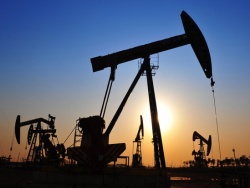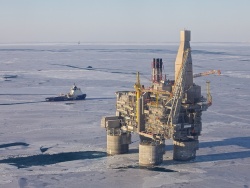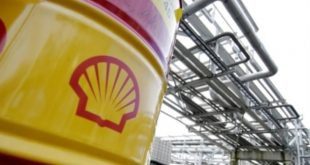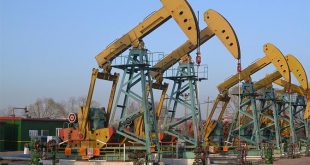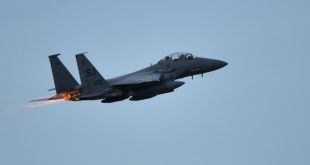
The price of oil approached $50 per barrel. One of the main reasons for the increase — the report of investment Bank Goldman Sachs, which reported that the supply of oil in may finally exceeded demand
Why oil is expensive
On Monday afternoon the price of oil Brent for the first time since November 5 of 2015 reached $49 per barrel, which is 2.38% higher than the previous close, follows from the data exchange ICE. $49,01 cost of the July futures overcame a 15:07 GMT. According to 20:00 GMT, the July Brent futures traded at $49,06 (growth by 2.5%).
Oil prices went up after the report of Goldman Sachs investment Bank on the restoration of balance in the oil market, reported Reuters. Physical rebalancing (volume balancing of supply and demand) the oil market finally began, the report said (RBC has a copy). In the first quarter of 2016, the level of production and demand for oil “pleasantly surprised” the market, which led to a reduction in the overproduction of up to 1.4 million barrels. per day (in March, OPEC estimated the oversupply of 1.8 million barrels. per day), noted Goldman Sachs analysts. By may, the oil market even a deficit, and the entire second quarter will be scarce, they predict.
World oil production is declining: according to Goldman Sachs, in the first quarter of 2016 its volume was 96,43 million barrels. per day compared 97,23 million barrels. in the last three months of last year. In the second quarter production to fall again (to 95,629 million), the investment Bank predicts.
In the previous forecast, released in March, Goldman Sachs analysts expect the onset of the deficit in the oil market only in the third quarter. Positive changes in the Bank attributed the higher-than-expected oil demand and unexpected supply disruptions, which has led a number of random factors — for example, forest fires in Canada and the attack on pipelines in Nigeria in early may. The market moves to rebalance much faster than expected, Barclays analysts acknowledge in their study, which quotes Agency Bloomberg. One of the reasons that Barclays called in the projected growth in demand in China. The sharp decline in prices can only occur in case of deterioration of macroeconomic indicators or the appearance of new unexpected factors, investment Bank analysts added.
Supply disruptions will contribute to the deficit in the oil market in the second half of 2016, continue in Goldman Sachs. But the size will be small — 0,4 million Barr. per day. In the first quarter of 2017, after eliminating these causes, the market again could be excess oil, warns the report. It can also affect the growth of production in Iran, Iraq and other countries with low production costs, including Saudi Arabia, Kuwait, UAE and Russia.
Partner of consulting company RusEnergy Mikhail Krutikhin recognizes that the study of Goldman Sachs pushed the price of oil up, but only in the short term”. But with the insights of experts at Goldman Sachs he did not agree: according to Krutikhin, the oversupply of oil on the world market and now is at the level of 1-1,5 million barrels of oil. per day.
In February, the four largest oil producers — Russia, Saudi Arabia, Kuwait and Venezuela — tried to agree to freeze production levels to reduce supply in the market. The main condition for the implementation of the agreement included the accession to other major producers, including expanding production after the lifting of sanctions on Iran. Because of disagreements within OPEC negotiations, which lasted two months, failed, but during that time, oil prices rose about $10 to $43 per barrel. Analysts predicted that because of the failure of the negotiations on prices to fall to $30–$35 per barrel, but this has not happened yet.
What will happen next
Despite the supply shortage, which describes Goldman Sachs, none of the respondents while RBC analysts are not revising their forecasts of oil prices this year. They remain at the level of $40-50 per barrel. The upward trend in world prices of oil was formed at the beginning of the year amid rebalancing of the market and reduce the level of production, says analyst, “Renaissance Capital” Ildar Davletshin. In addition to short-term factors (fires in Canada, fighting in Nigeria, the political protests in Venezuela, the strike in Kuwait) in the medium term in favour of the growth of oil prices will play a continuing high demand for petroleum products in the world, the growth of demand for oil in China and the growth of sales of cars in Europe. According to the forecast, “Renaissance Capital”, the average annual price for Brent crude in 2016 will be $40 per barrel in 2017 — $50, 2018 — $52.
Senior analyst at UBS Maxim Moshkov believes that oil prices will continue to rise due to production cuts in the world. In the fourth quarter of 2016, according to his estimates, the price could reach $49 per barrel, but the average for the year will be $42,5 per barrel, he said. According to UBS forecasts, in 2017 the price of oil will be $55 per barrel in 2018 — $70.
Krutikhin expects oil prices to remain volatile until the end of the year, and the average price following the results of 2016 will be about $45 per barrel. In the short term the price of oil could soar to $55-60 per barrel, but before the end of the year can fall in the event of a slowdown in demand in China and the growth of shale oil in the United States, he points out.
Energy Minister Alexander Novak in a recent interview with RBC predicted the price of oil between $40 and $50 in the second half. But the average price for the year given the relatively low quotations in the first half of the year will be $40-45, he suggested. The representative of “Rosneft” Mikhail Leontyev told RBC that the company has not changed its forecast for the price of oil (earlier it was reported that the business plan of Rosneft laid the price of $45 per barrel). According to him, the price of oil in 2016 will be volatile, and the demand on the world market will recover no earlier than next year. “While the market is imbalance, you can manipulate it”, — concluded Leontiev.



